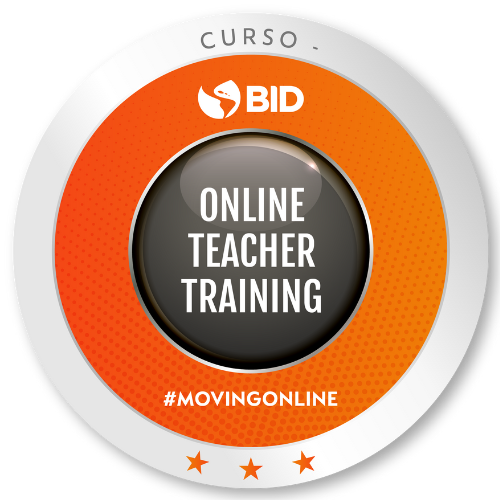
Online Teacher Training for the Caribbean
15th. edition
You can earn this badge if you successfully complete the course.
What is an instructor-led online course?
The online instructor-led courses are offered in a personalized mode with a limited number of participants per class. Start and finish dates are clearly marked. Besides the online tools used for interaction in the virtual environment, courses provide students with continuous support from a technical assistant, the tutor and a program coordinator, who are experts in the course topics, and are able to offer effective feedback in all course activities and promote relevant discussion.
ARE YOU IDB EMPLOYEE?
See the courses list with scholarships for IDB employee
COURSE TYPE
ONLINE TUTOR
SESSION
ALSO OFFERED
COST
$25 Early Bird/ $120 Regular
LANGUAGE
TIME COMMITMENT
LOCATION
ABOUT THIS COURSE
The course covers the main concepts and best practices of online teaching. It covers both technical skills, as well as instructional design and pedagogical concepts.
Learners have the opportunity to apply fundamental concepts and best practices in online pedagogy, with a special focus on online discussions, course management, effective student feedback, learning assessment and online presence.
At the end of the course you will be able to:
- Identify the components of an effective virtual learning environment.
- Analyze pedagogical and motivational strategies in online courses that serve as a guide for students in virtual asynchronous environments.
- Identify and apply good practices to moderate online discussions, considering the different teaching presences.
- Identify technology tools and resources that support learning at a distance.
As part of the AcademiaBID portfolio, instructor-led courses, differently than self-paced or massive online courses, are taught by a subject matter expert with demonstrated experience in online teaching. Throughout several weeks, participants have numerous interaction opportunities with the instructor(s) and peers, contributing to a more effective learning experience. Assignments and other learning activities will be reviewed by the assigned instructor(s), who will provide personalized feedback.
AUDIENCE OF THE COURSE
This course is available to resident of LAC IDB member countries and members of the Caribbean Development Bank (CDB).
Interested candidates residing outside of those countries may register but will be placed in a waiting list and given available slots at the end of the registration period.
Regional members of the CDB are:
Anguilla.
Antigua and Barbuda.
British Virgin Islands.
Cayman Islands.
Dominica.
Grenada.
Montserrat.
St Kitts and Nevis.
St Lucia.
St Vincent and the Grenadines.
Turks and Caicos Islands.
COST & REIMBURSEMENTS
COURSE STRUCTURE
- Use the navigation and communication tools available in INDES virtual courses
- Identify INDES policies regarding privacy, accessibility, plagiarism prevention,and late deliverables, among others
- Use virtual classroom resources and functions to perform the necessary actions to complete course acitivities
- Demonstrate use of the tools presented in this orientation module
- Recognize the history and heritage of Distance Education
- Compare and contrast Emergency Remote Learning (ERL) and Online Education
- Reflect on your path to remote teaching or online teaching
- Identify practices of successful virtual teams
- Identify support information for online learners
- Reflect on the needs of learners in the Digital Age
- List the challenges that online learners face
- Explain the Digital Divide and its impact on learners
- Identify strategies to overcome the challenge of distance in online learning environments
- Identify theories used in online teaching and learning and instructional design
- Reflect on the role of motivation in the virtual classroom and ways to increase student motivation
- Recommend strategies for using technology tools in online teaching and learning
- Recognize how aligning course objectives, resources, activities, and assessments is critical for sound instructional design
- Differentiate between social, cognitive, and teaching presences in online forums
- Create messages that exemplify social, cognitive, and teaching presences
- Provide feedback to students about the performance of their work
- Use best practices to moderate online forums
- Recognize how effective instructional design can cultivate the presences
- Explain the role of cultural humility in the virtual classroom and how to cultivate it
- List all the elements that should be part of any online course
- Review the progress made during the development of the course
- Reflect on lessons learned in the course
